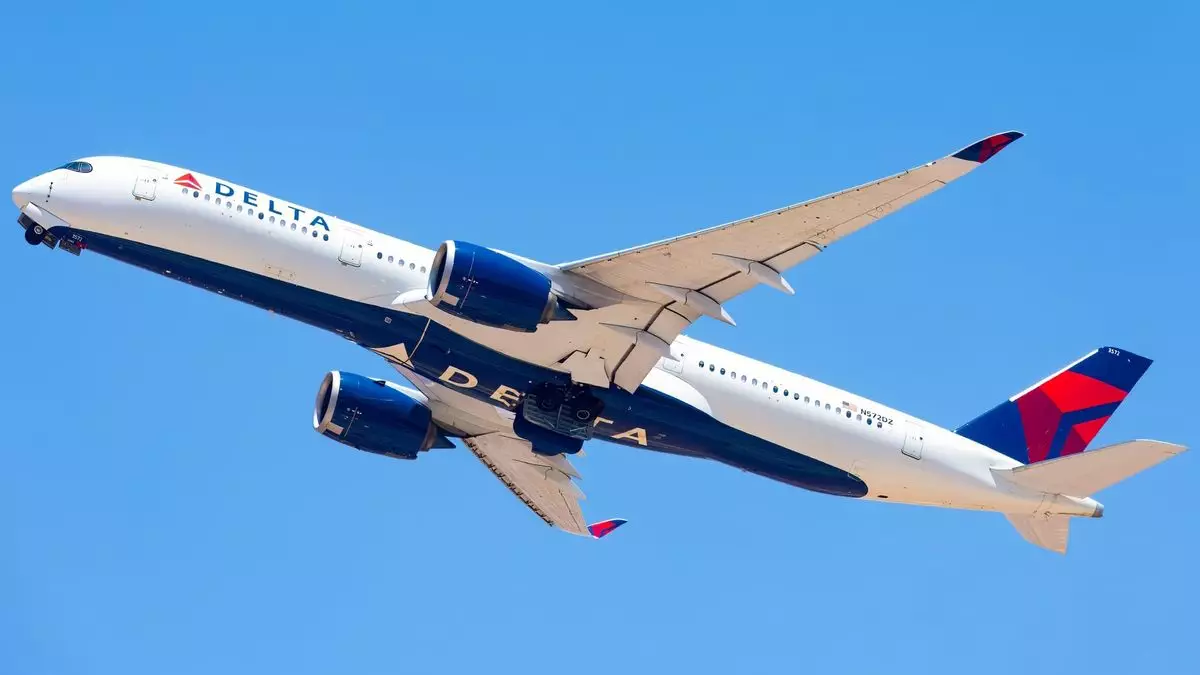The global economy is increasingly unpredictable, and Delta Air Lines finds itself navigating turbulent waters. After recently retracting its projections for 2025, the airline’s leadership acknowledged that escalating trade tensions have ignited uncertainty around consumer and corporate spending. CEO Ed Bastian’s statement reflects unease prevalent in several sectors: “With broad economic uncertainty around global trade, growth has largely stalled.” This kind of sentiment strikes at the core of many businesses as they grapple with the impact of geopolitical tensions on their bottom lines.
Investors are understandably jittery, leading Delta’s stock to take a hit despite the airline’s positive earnings report. The drop in Delta’s shares—over 41% this year—is symptomatic of a broader trend impacting the airline industry, which has been forced to rethink its strategies. The travel sector is not only sensing the ripple effects of a trade war but is also forced to assess its future growth potential against a backdrop of reduced consumer confidence.
Financial Metrics Tell a Complex Story
In the first quarter, Delta reported an earnings surge to $240 million, translating to 37 cents per share, a considerable jump from the $37 million or 6 cents per share earned a year earlier. However, while the raw numbers may seem impressive, they become less reassuring when considering the external pressures affecting future viability. Analysts had forecasted a lower earnings figure, yet investors responded unfavorably, reflecting a broader skepticism in the market.
Moreover, even amid an increase in quarterly operating revenue, from $13.75 billion to $14.04 billion, the airline feels the squeeze of diminished demand for travel services. Delta had anticipated a more robust earnings forecast and upgraded revenue expectations earlier in the financial year, but the recent trend of declining consumer confidence has turned bullish expectations into wary caution. When CEO Bastian notes the need to “focus on what we can control,” it encapsulates the desperation felt by many within the airline industry struggling to reconcile optimistic targets with the sobering reality of changing economic landscapes.
Adjusting Course: Strategic Moves Ahead
As part of a calculated strategy to stabilize the company, Delta announced it would be curtailing planned capacity growth, aiming for flat growth compared to last year. This pivot signifies a shift from aggressive expansion to operational prudence. It’s an acknowledgment that, in times of economic instability, sustainable operations and controlled costs can often provide a buffer against external shocks.
This approach aligns with broader trends seen across numerous industries, where management teams prioritize resilience over growth. As Ed Bastian commented, the evolving global landscape compels Delta to protect its margins and re-evaluate capital expenditures. In the travel sector, where demand has already begun to cool due to external pressures, the ability to adjust swiftly plays a pivotal role in enduring the storm.
Increased Uncertainty for Future Earnings
Delta already revised its outlook for the second quarter, anticipating earnings per share ranging from $1.70 to $2.30, reflecting a cautious approach. The airline stands at a crossroads: its previously buoyant expectations for 2025, forecasting earnings exceeding $7.35 per share, now seem excessively optimistic. Glen Hauenstein, Delta’s president, summed it up well when he highlighted how the trajectory for 2025 is radically altered from the firm projections that were made earlier this year.
Amid fluctuating market conditions, the airline is inching toward profitability milestones with an expected quarterly profit of $1.5 billion to $2 billion, yet still grapples with a challenging revenue outlook. Evolution in the airline business isn’t solely contingent on internal performance; rather, it directly correlates with external geopolitical dynamics. Each company now finds itself at the mercy of worldwide intricacies that can abruptly reshape earnings forecasts.
Adapting to a New Normal
Delta Air Lines serves as a case study in navigating the complexities of today’s volatile economic climate. While the company is entrenched in ongoing dilemmas stemming from trade tensions, its proactive modifications in strategy to maintain operational control offer insight into how airlines can adapt under pressure. The uncertainty that defines current market conditions isn’t confined to Delta—it’s a narrative shared among airlines and industries worldwide struggling to adapt to an unpredictable future.
Innovation, strategic constraints, and a clear focus on cash flows can fortify a business against the existential risks posed by external factors. In this landscape, resilience—not mere expansion—might well be the hallmark of future success in the airline industry.


Leave a Reply